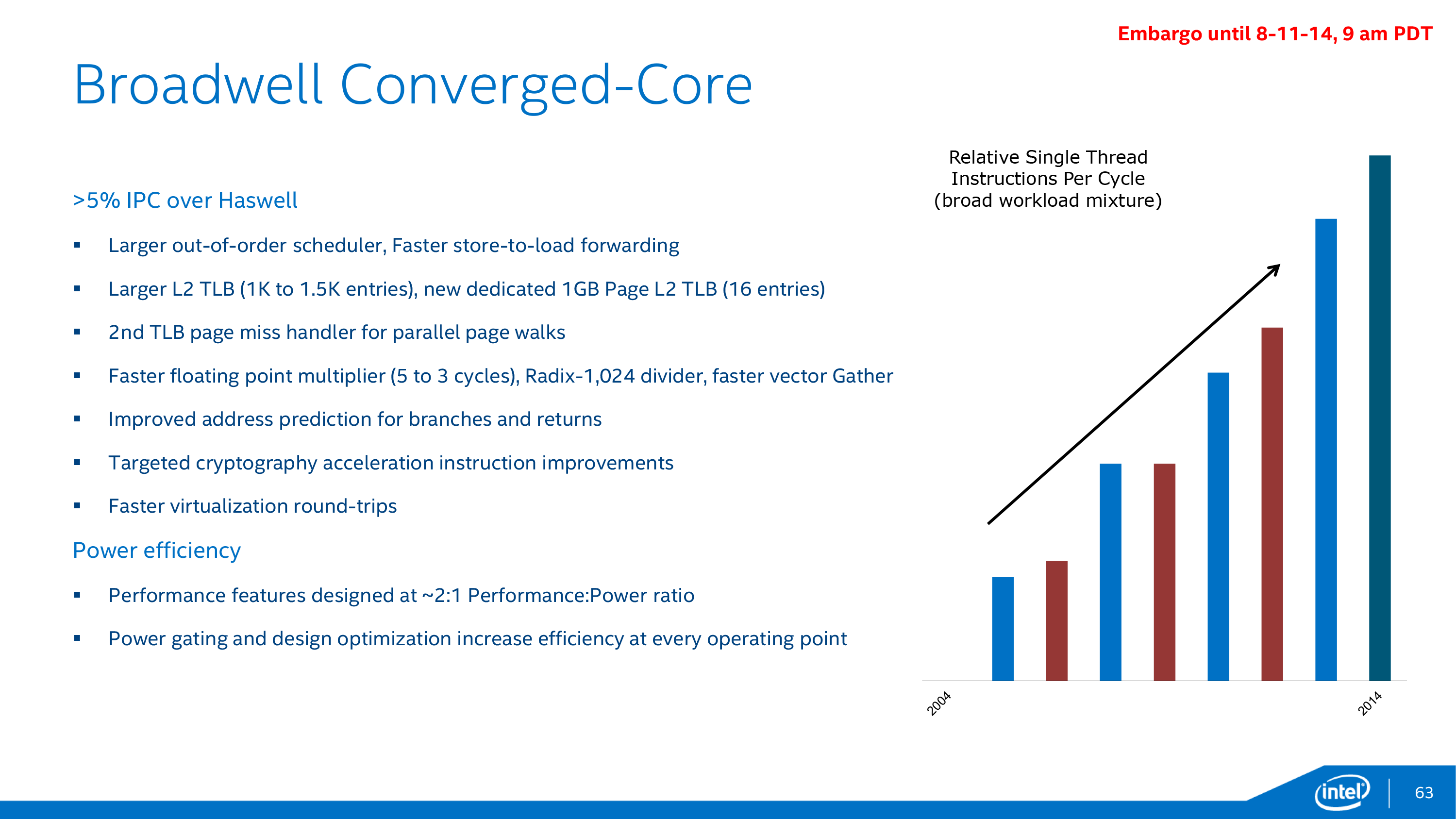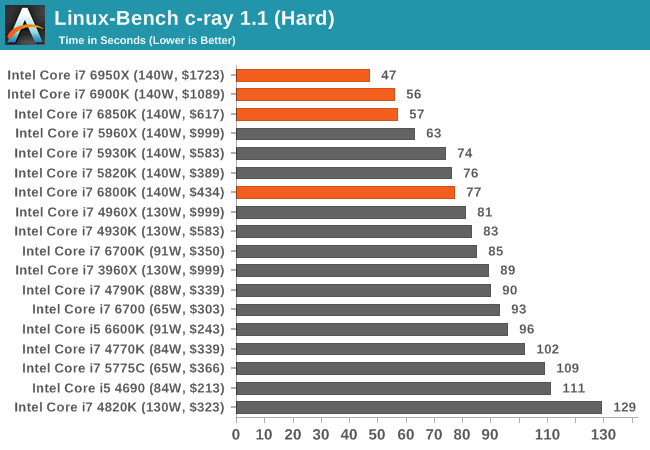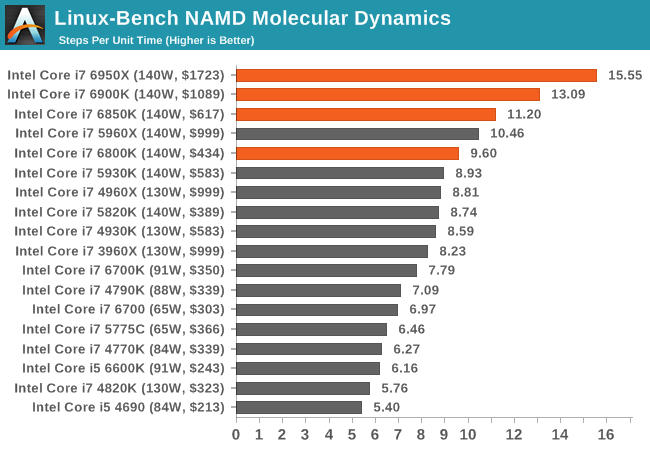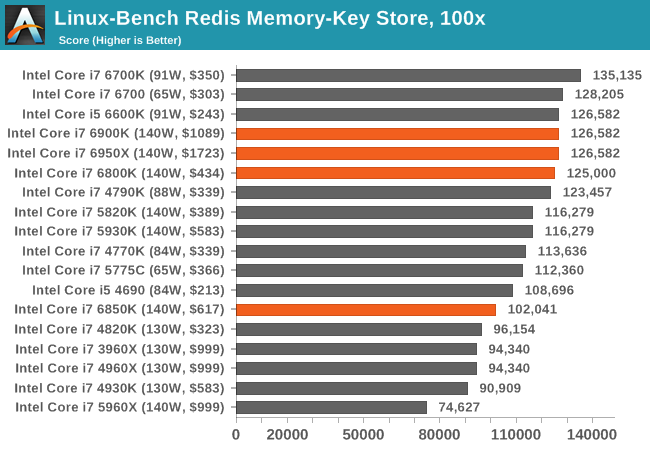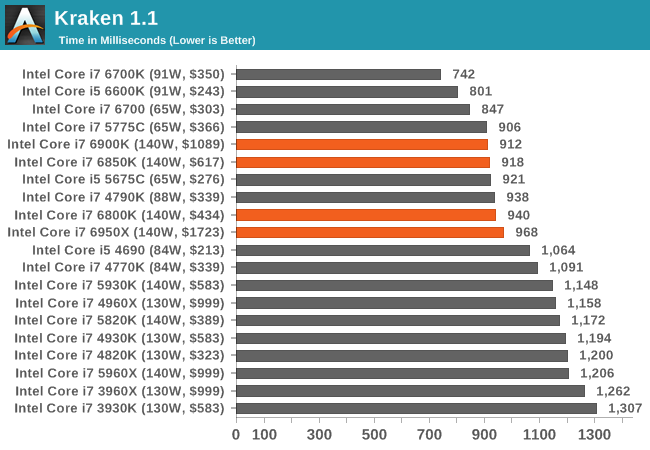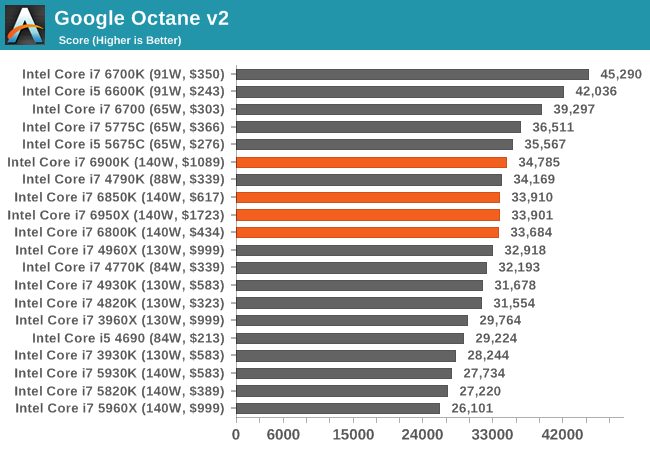Base/default speeds don't matter at all, how long do I have to repeat this same thing before it gets into people's heads? Based on what I know about Xeons, Broadwell-E can clock the same with more cores what Haswell-E can do with less cores. It is of critical importance to know about clock speeds in single-thread heavy web benchmarks.
I'm beginning to wonder whether you're dyslexic.

I already told you the clock speed difference between the 5930K and the 6850K is only 100mhz. This is for
BOTH base and boost clocks. The
maximum boost clock for the 6850K is 3.8ghz, and for the
5930K it's 3.7ghz.
A 100mhz clock speed deficit is not going to account for a 25% and 22% increase in these benchmarks. Assuming the best case scenario which is perfect linear scaling, a 5930K would need to be clocked at around 4.6ghz to equal the stock 6850K in the Kraken benchmark.
Broadwell improved some things about AVX2 support and reduced some latencies with scalar and vector division instructions. It also improved DDR4 support. There's nothing significant apart from those changes in explaining the performance differences between Haswell-E and Broadwell-E, apart from clocks. On top of that, you also willfully ignore how TBM 3.0 can affect performance on Broadwell-E.
All of the changes that were outlined in the Intel slide are cumulative in their impact on performance. And don't kid yourself, you're not a CPU architect or a software engineer. You don't know the performance impact of these changes, especially as to how it relates to certain types of software.
Obviously the impact is substantial, otherwise the performance increase wouldn't be so large as to completely exceed the minor clock speed boost.
Here are the turbo bins for the 5960X.
3.3GHz. Now this is what The Stilt had to say about turbo clocks on the 6900K:
That's a 9% difference. And yet you still think I'm stupid to ask you to provide information about clocks. Geez.
You're literally grasping at straws. And while I don't think you are necessarily stupid, you are definitely slow when it comes to comprehending and accepting certain truths you don't like.
You can harp about the 5960x and the 6900K all you want, because even with the clock speed deficit and the assumption of perfect linear scaling,
it still cannot account for such a large gap. That's why I preferred to use the 5930K vs the 6850K, because they are the most similar in terms of boosted clock speeds, with only a
100mhz deficit between them.
Now keep on believing that a mere 100mhz increase in clock speed is going to account for the 6850K beating the 5930K by 25%




